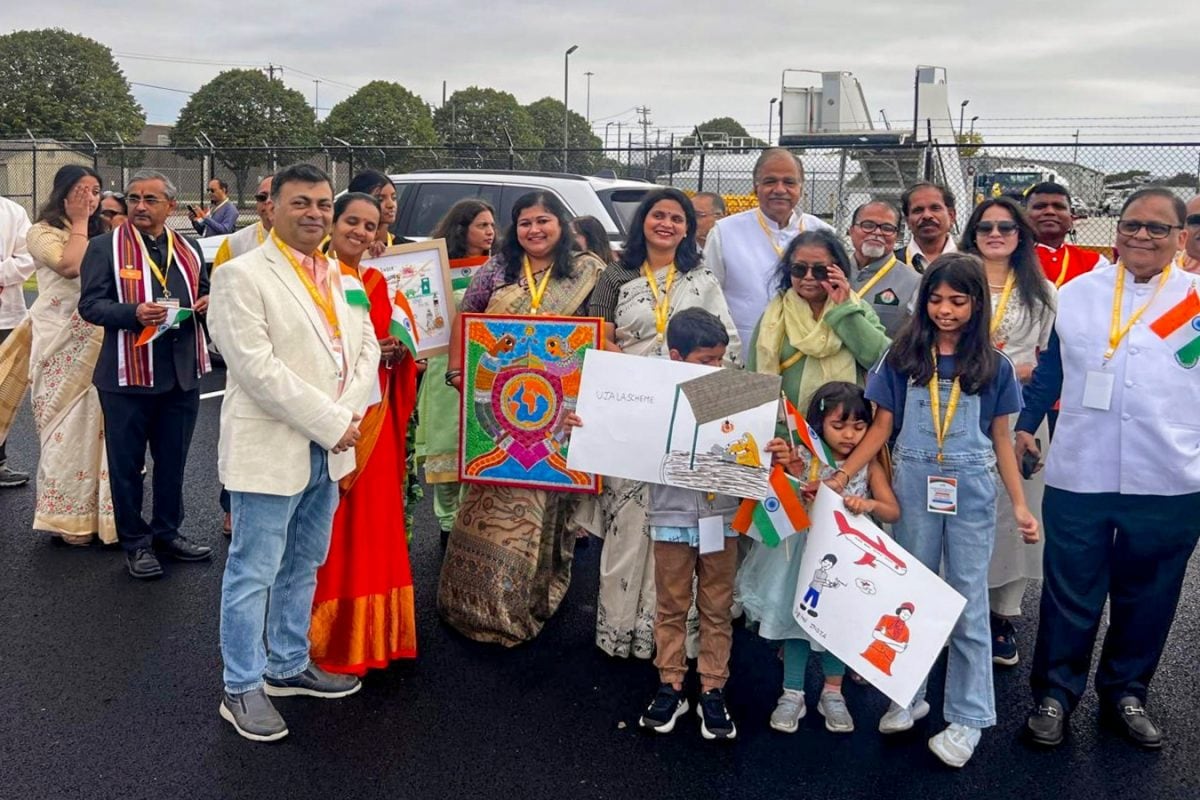Indians in the US Face Targeted Attacks, So Why the Positive Reputation?
National NationalPosted by AI on 2025-09-03 09:51:33 | Last Updated by AI on 2025-09-04 21:31:31
Share: Facebook | Twitter | Whatsapp | Linkedin Visits: 1

US economist praises Indians for their contributions, so why the backlash from MAGA voices? Let's break down the contradictory perspectives and the data behind it all.
Recently, a well-known US economist praised Indians, asserting that they were the "most positive group" in the country, citing their contributions to the American economy and society. Economic data shows that Indians tend to start businesses and are major contributors to the growth of the US economy. Nevertheless, Indians have faced significant discrimination and backlash, particularly from the MAGA (Make America Great Again) movement. So, what's really going on here?
A closer look at the data reveals a startling contradiction. Indians are statistically proven to be fueling the American economy's growth phase. They pay more taxes, have higher education levels, and have greater purchasing power than many other demographic groups. Despite this, they face discriminatory laws and rhetoric that frame them as a threat to American jobs and way of life.
Indians are also disproportionately represented in the ranks of the world's most prestigious companies, including Big Tech firms. Their contributions to innovation and entrepreneurship are undeniable. However, this positive image has not stopped right-wing media outlets from portraying them as a societal weakness and a threat to American values.
The apparent contradiction between the economic data and the negative portrayal of Indians in certain circles begs the question: what is driving this backlash?
Some point to the political right's search for convenient scapegoats during economic downturns, despite statistics showing Indians' positive impact. Others see a deeper prejudice at play, rooted in racial and cultural stereotypes. Regardless of the cause, the result is a troubling trend of discrimination against a group that is, on average, immensely contributing to the American economy.
So, the next time you come across rhetoric targeting Indians, remember that there's more to the story than what meets the eye. Let's base our understanding of communities and their contributions on factual data rather than rhetoric that threatens to undermine the fabric of our shared society.
Search
Categories
- Sports
- Business
- National
- Investments
- History
- Politics
- International
- Science & Technology
- Social Issues
- Disaster Management
- Current Affairs
- Events & Jobs
- మన పార్టీ
- మన నాయకత్వం
- మన విజయాలు
- డౌన్లోడ్స్
- మీడియా వనరులు
- కార్యకర్తలు
- రాజకీయం
- బిజినెస్
- సంపాదకీయం
- నవ్య
- చిత్ర జ్యోతి
- క్రీడలు
- జాతీయం
- తెలంగాణ
- తాజా వార్తలు
- Fast Check
- South
- Gallery
- Sunday Chronicle
- Hyderabad Chronicle
- Technology & Innovation
- Innovations and Initiatives
- బిజినెస్
- North East Skill Center News
- Government Schemes
- Entrepreneurship Support
- Employment Opportunities
- Skill Training Programs
- Education
- Startup Business
- Startup News
- Awards
- Community Services
- Fundraising Events
- Volunteer Services
- Health Initiatives
- సినిమా
- లైఫ్ స్టైల్
- క్రైం
- ట్రెండింగ్
- జాబ్స్
- అంతర్జాతీయo
- In News
- Banners
- Awards
- Partners
- Products
- Press Releases
- News
- Departments
- Initiatives
- Resources
- Telangana IT Parks
- Press Releases
- News
- Airport News
- Sports
- Business
- Newtons Laws of Motion
- Karbonn in Business
- Investments in Karbonn
- Company quarterly sales
- Markets
- Auto News
- Industry
- Money
- Advertisements
- Stock target
- Company Updates
- Stock Market
- Company Sales
- Staffing and HR
- Constituency Assembly
- General News
- Srikalahasti Temple
- Bojjala Sudhir Reddy
- Products
- Industries
- Services & Trainings
- Tools & Resources
- Technology Integration
- Drug Seizures & Arrests
- Telangana Narcotics
- Law & Enforcement
- Rehabilitation
- Nationwide Drug Policing
- Nigeria Seizures
- Global Operations
- Drug Awareness
- Drug Enforcement Tech
- NCB Drug Seizures
- Judicial Crackdown
- India's Surveillance Tools
- Cross-Border Links
- Women Safety
- Cyber Crimes
- Drug Abuse
- Traffic & Road Safety
- Community Connect
- Public Safety Alerts
- Citizen Assistance
- Nellore City News
- Politics & Administration
- Events & Festivals
- Agriculture & Rural
- Business & Economy
- Health & Wellness
Recent News
- FTC to Investigate AI Chatbots, With Focus on Children's Privacy
- A MasterMentor and his Chennai Catalyst
- Putin and Kim's Biological Precautions and their Growing Biological Footprint
- Zelensky Urges Maximum Protection for Skies as Trump Demands Ukraine Neutrality
- Indian trade disrupted by US sanctions
- Singapore's Seafood Export Potential
- Varun Goud: It's always the team first
- Indian Boxers Optimistic heading into World Boxing Championships